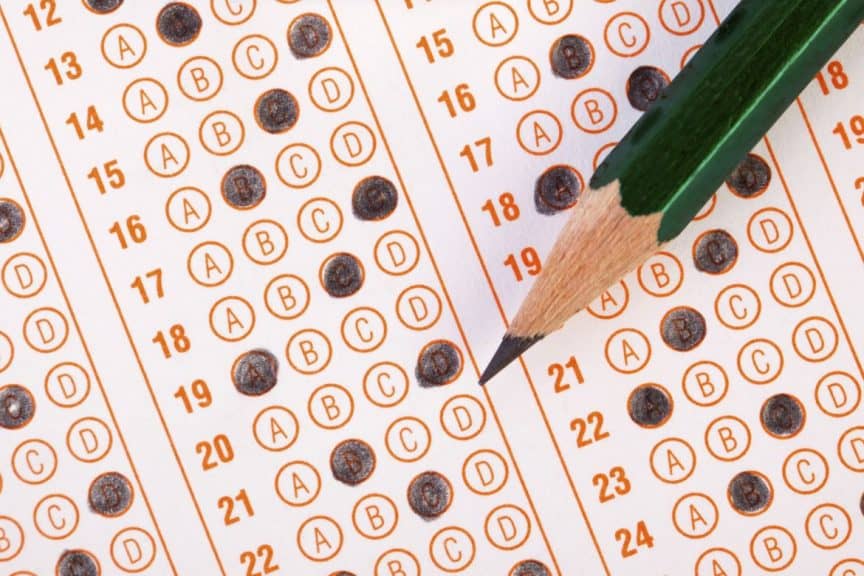How are teachers really evaluated in independent schools? Most traditional teacher evaluation methods use a number of questions to focus heavily on classroom processes and atmosphere. What is the teacher doing? Lecturing or providing engaging activities that will interest students and help them learn important content, concepts and skills? What are students doing? Are they engaged and productively busy? Are students and teachers mutually respectful in their interactions? Is the atmosphere in the room reasonably orderly and conducive to student learning? Does the teacher re-direct inappropriate behaviour effectively?
Such factors are generally agreed to provide necessary conditions for student learning. However, there is the desire by many parents to tie teacher evaluation more directly to student achievement on standardized tests. While much work has been done on developing “value added” teacher evaluation systems that attempt to quantify the difference teachers make to students’ education, these methods are controversial and even subject to legal challenges.
Regardless of the formal teacher evaluation system, in any schools where students take external, government-mandated or other standardized tests, these tests become high stakes for the schools. Inevitably, parents and the public judge the schools by their result on these tests. It is assumed that the students of better teachers will do better on the tests than those of less-skilled ones.
The reputation of a school stands and falls by its tests results. Important as reputation is for all schools, it is particularly so for independent schools. Googling “Best Independent Schools”, one will find test scores prominent amongst the criteria for making the “best” list. After all, why sacrifice to pay the hefty fees charged by private schools if students don’t get a superior education? And what clearer way to judge the quality of the education offered than by the school’s results on these “objective” tests?
It is often claimed that a strong predictor of students’ test results is their socio-economic status. If that is true, it only strengthens the argument that students in independent schools, especially ones that charge high fees, should do exceptionally well on the standardized tests.
Here is a problem (there are others): The tests tend to test mainly those parts of the curriculum that are easy to test, and to mark “objectively”, and relatively cheaply. The tests that I am familiar with rely heavily on multiple choice questions, and I remain deeply sceptical of the ability of such tests to validly assess high level, sophisticated thinking.
Nevertheless, there is evidence that having standardized test results as a component of teacher evaluation does have a positive impact on overall student outcomes. To the extent that these tests do indeed measure important, fundamental, education outcomes, this makes sense. I started teaching in North America at a time when in my jurisdiction there was no external testing. Students’ final high school completion marks were simply the teacher-assigned marks. When government-mandated external testing was introduced, there was a palpable sense in schools that suddenly student achievement of curriculum goals mattered. Imperfect as they are, and despite some serious negative consequences, I have no doubt that the quality of education increased. When schools and teachers were judged, formally or not, at least in part by their students’ achievement on these tests, it had an overall positive impact.
But one must never forget that schools’ goals, particularly independent schools, tend to be much broader than the “outcomes” examined by tests. For example, many independent schools emphasise character development and citizenship. The effectiveness of the schools in developing these behavioural and attitudinal traits cannot be captured in standardized tests.
A valid teacher evaluation process in independent schools must be comprehensive, taking into account the many aspects of a teacher’s contributions to the school and her students’ education. If co-curricular activities are important, the teacher’s contribution to that program should be addressed in the evaluation. If the school promotes development of character and citizenship, the teacher’s modelling of these qualities matters and should influence the assessment. The parent experience is vital to parent satisfaction, and thus the continued enrollment of their children, and so teacher’s interaction with parents should be evaluated. And so on.
In fact, teachers’ overall impact on their students’ experience as well as their impact on the school always are assessed in determining the value of teachers to the school. The trouble is, they most often are not properly reflected in the formal evaluations that usually focus almost entirely on classroom observations.
If evaluation processes are to be credible, they must align with the reality: the teacher’s contribution to everything that matters to the school must be recognized in their formal evaluations.

